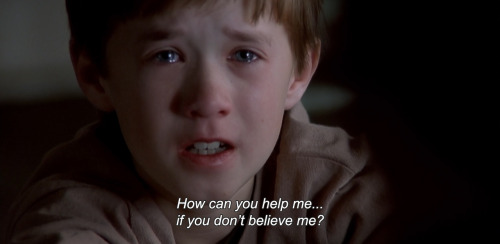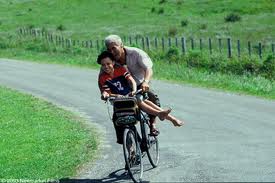"It is painful to lose something or someone you love deeply about."
By the film title itself, I thought it was a movie about forgiveness as "Grace is gone". However it was a movie about grief for death. Stanley Philips, a father with two daughters, Heidi and Dawn, received the news about his wife's death, Grace, who serves in the military. Stanley himself is not prepare for the news and take a certain of period to tell his daughters.Just right after the next day of the movie, I received the news about my aunt's death. It is hard for me to handle two people I love and care left within a year, it is way harder for my uncle to handle losing a son and wife within a year. Leaving my uncle and a 9-years-old cousin, I wonder how my uncle tells him about the death of the mother.
Elisabeth Kubler-Ross proposed the Five Stages of Grief in 1969 (Smith & Segal, 2016) which initially explained patients' feeling toward terminal illness, however later is generalized to other negative events and losses, for example relationship break-up and death.
Stage 1: Denial
"This is not true." "This cannot happen to me."
We tend to ignore what is undesirable to us, same goes to the news that we are not expected and ready for that. In the movie, Stanley denies to accept the fact that his wife had gone when two officers visit to his house and inform him about his wife death. He just cannot believe and repeat his question to ask the officers about his wife. He felt lost and does not know what to do but keep himself and her daughters out of the house first and do something unusual to hide his emotion. Very quickly, Stanley's emotion moved to the next stage.
Stage 2: Anger
"Why is this happening?" "Who's fault to blame?"
Although Stanley tries to keep his emotion under controlled, there are few scenes show Stanley lose his temper: when he meets with his brother while stop by at his mother's house, when the brother knew about Grace's death and the children are yet to know.
Stage 3: Bargain
"If I had a chance to.... in return I will...."
I believed Stanley has much regret for things that are too late to do, for example to apologise to his wife for the last argument. Stanley makes a phone call back to his own house telephone to hear Grace's voice on the recorder, and express his regrets, lost of direction and grief. From the way he talks to the phone, he hopes that it was him being deployed instead of Grace. I could feel how much Stanley wishes "if things do not happen, I would....." and I am sure he is willing to pay anything just wanting his wife come back alive.
Stage 4: Depression
"I am too sad to do anything."
Stanley shows low interest to do anything when he comes across this stage. But because he does not want his daughters to know about their mother's death, he tried to keep himself doing many things that he does not really interested. Whenever the children are safe with other people such as having lunch with their uncle, or when the children are having fun in the swimming pool, Stanley just wants to rest and sleep, and sometimes he needs a quiet time away from his daughters. Losing a loved one makes him find no meaning to do anything. Solely because he understands that the daughters still need him, therefore he tries to engage in activities with his daughters
Stage 5: Acceptance
"I am fine with what happened."
After bringing the daughters to Enchanted Gardens, Stanley gradually accept the truth, got healed inside his heart and recovered from the grief of lost. He makes sure that himself is string enough when he tells his daughters about their mother's death so that he can be their support.
Grieving can be painful, but it allows human to recovered from the lost. It is ok to be not ok, sometimes. We need to allow our emotions have a better way to be expressed. Learning about this was quite helpful for me to comfort my uncle and cousin, also myself to accept the fact that my aunt has left us. As we know, we still need to stay strong and live our life even after someone has left before us.
References
Smith, M. & Segal, J. (2016). Coping with grief and loss. Retrieved from http://www.helpguide.org/articles/grief-loss/coping-with-grief-and-loss.htm


